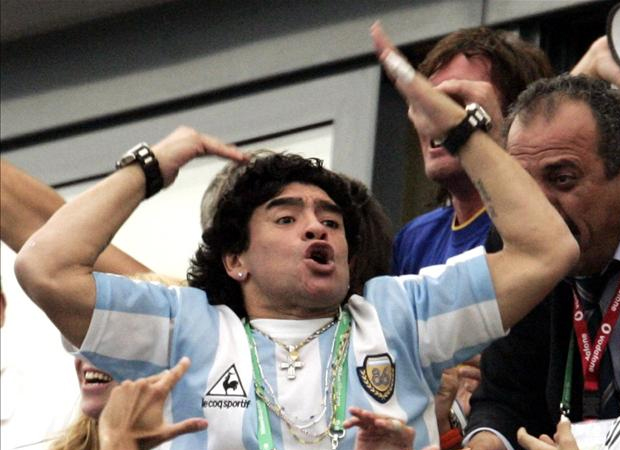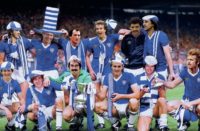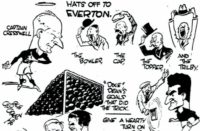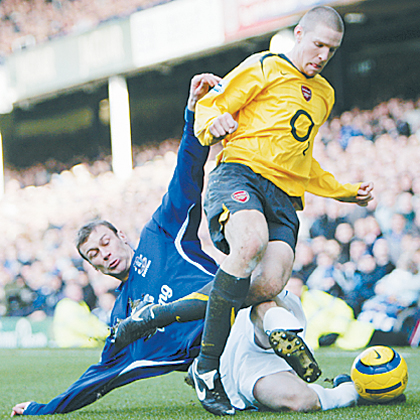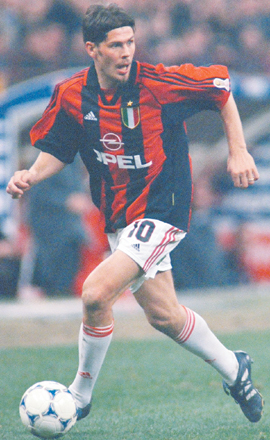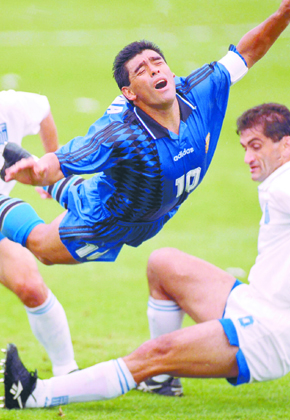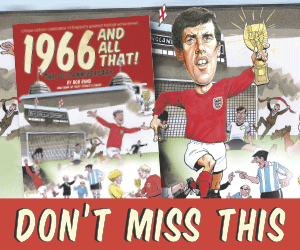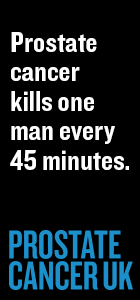WHAT is a football hardman? Look at the myriad lists on the internet and you’ll see names like Kevin Muscat, Roy Keane and Ron ‘Chopper’ Harris – men who thought nothing of a knee-high tackle from behind.
But does this make them hard? I don’t think so. Assaulting some poor fella who isn’t expecting it just makes you a coward. If they can’t get up and hit you back, it doesn’t count for anything.
Keane? He only acted tough in the safety of a football pitch. Muscat? Since when did deliberately trying to end someone’s career make you tough?
And as for these lists that include Robbie Savage and Dennis Wise, come on – what’s hard about being a whinging wind-up merchant?
The men above are all pretend tough guys. The fact is, they wouldn’t last five minutes against some of the folk below.
Billy Whitehurst
Vinnie Jones was taking part in a radio Q&A when a caller asked him what it felt like to be the hardest man in football. “I don’t know,” he said. “Ask Billy Whitehurst.”
A Yorkshireman with a boxer’s pulverised face, Whitehurst was a 14-stone wall of aggression, a striker who struck terror into defenders. Many a big centre-half was left bloodied and bruised by his flailing elbows, with former Liverpool defender Alan Hansen famously earmarking Whitehurst as the opponent he feared the most.
Off the pitch, he was even scarier. While at Oxford United, he supplemented his wage by fighting bare-knuckle bouts against local gypsies and was often found brawling in pub car-parks.
After one such incident (“I was arguing with this kid – I put my thumb in his eye and smashed his head against the wall,” he recounts) Whitehurst was set upon by two men with a cosh. He was left with a hole in his cheek, 30 stitches in his head and a nose that had to be sewn back on. Yet ten days later he was playing, even returning to the field (courtesy of 12 staples) after his nose had been re-splattered in a challenge. Nails and nuts.
Duncan Ferguson (above)
Remember when Kyle Reese described the Terminator to Sarah Connor? “It can’t be bargained with. It can’t be reasoned with. It doesn’t feel pity, or remorse, or fear. And it absolutely will not stop, ever, until you are dead.”
So it was with Duncan Ferguson, the mad-eyed Glaswegian with a fuse the size of Danny Devito. Like Begbie in Trainspotting, Ferguson was terrifyingly unpredictable, as liable to punch you in the face as shake your hand.
Many were the opponents who succeeded in winding the Rangers, Everton and Newcastle striker up, only to realise the price of their victory was a black eye or a punch in the guts.
Raised in The Raploch, a rough area of Stirlingshire, Ferguson also survived a stint in HMP Barlinnie (for headbutting Jock McStay) and twice incapacitated robbers who tried to burgle his home, sitting on the first until police arrived and, a few months later, putting the other in hospital with a Glasgow kiss. Who needs a burglar alarm when you’ve got big Dunc?
FOOTBALL is often described as a battle. Usually, it’s hyperbole, but when Dinamo Zagreb ‘welcomed’ Red Star Belgrade in May 1990, it really was.
With Yugoslavia on the brink of war and ethnic tensions at their peak, the already fierce rivalry between the Serbians of Red Star and the Croats of Dinamo had taken on a sinister new dimension.
Hell bent on destruction, the infamous General Arkan led a 3,000-strong group of hardcore hooligans to Zagreb, who invaded the pitch and set about their opponents with chairs and knives.
The resulting riot left 60 injured, yet while most of the players escaped to the dressing rooms, Zagreb skipper Boban stayed to fight with fans, famously kicking a policeman who was beating a Dinamo supporter.
Boban was proclaimed a national hero in Croatia but persecuted by the Yugoslavian authorities who, with threats, bans and criminal charges, eventually drove him out of the country. Mind you, he did get to play for AC Milan.
Steven Pace
WHEN Nigel Pearson broke his leg whilst playing for Sheffield Wednesday in 1993, he walked off the pitch. Fair play, but that’s still not as impressive as Melbourne Victory’s Steven Pace, who played on for 40 minutes after fracturing both his Tibia and Fibula in the club’s final match of the 2007-08 season.
The defender gimped around for the whole second half after a heavy challenge and eventually needed pins to put his limb back together.
Anyone can hack a player down, but it takes a unique kind of courage to keep going when everyone on the field is trying to take you out at the knees.
And from the moment he started playing, opponents were trying to maim the 5ft 4ins Argentine maestro.
Some succeeded – Andoni ‘Buthcer of Bilbao’ Goikoetxea left him with an Eduardo-esque broken ankle – but most failed. As one former coach said, Maradona wasn’t just the best player in the world, he was also the finest hurdler.
Nevertheless, plenty of boots found their mark and by the end of his career, Maradona needed constant painkillers just to play. Even so, he kept running, kept jinking, kept teasing and taking people on. That’s the kind of courage men like Muscat and Keane can only dream of.
And the hardest players of all time… FC Start
FORMED in 1942, Start were a football team made up of ex-Dynamo Kyiv players left homeless and starving by the Nazi occupation of Ukraine.
Created to raise morale in Kyiv, Start beat all comers, including a 5-1 destruction of FC Flakelf, a team made up of German Luftwaffe soldiers.
Furious, the Germans ordered a rematch and, fortified by better players, lined up in Kyiv ten days later.
Before the match, the referee (A German SS officer) told the FC Start players to greet the officials with a Nazi salute. They did but, instead of shouting ‘Heil Hitler’, yelled ‘Heil Sport’.
And at half-time, with Start 3-1 up, the referee again visited their dressing room. “Do not win,” he said. “I am asking you to think about the consequences.”
Though what happened next has been much disputed, these facts remain: At full-time, it was 5-3 to Start.
Nine days after that, four of the players were arrested, with Nikolai Korotkikh perishing at the hands of the Gestapo and the other three joining the 25,000 other Ukrainians massacred at Syrets Concentration Camp in 1943.

